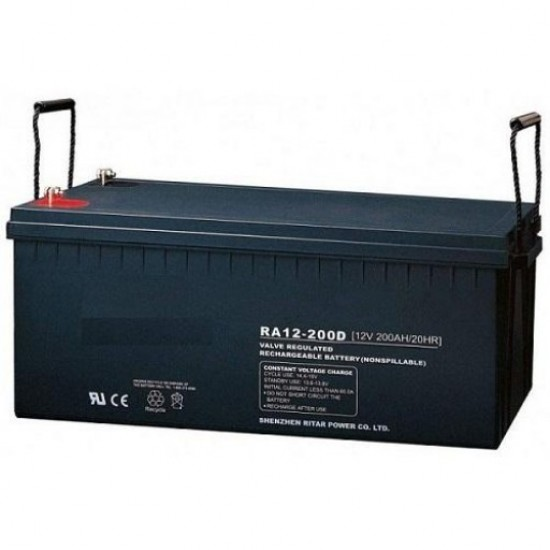NO, a 200Ah battery will not explode here
In general, you can assume any battery can handle one-hour rating in Amps from the Ah rating (20h). So 200 Amps no sweat for a 200 Ah bank.
Good batteries of this type are protected internally for explosion from short-circuiting the terminal, if that is a risk, which might be the only risk from H2 generation and a spark. e.g. Lithium.
Think car starter and welder's cables. Search for your battery datasheets.
(BTW what models for MPPT and battery?)

But for 30 seconds if the CCA rating is 5x this amount or 1000A for 30sec max. with 2 min. delays between for cooling. But due to Puekert's Law the Ah Capacity reduces from 20h std value. So if drained in 1h you might lose 20% capacity more or less depending on quality of chemistry. The life expectancy depends on how well balanced each cell is (Quality Control) and the depth of undercharge or overcharge. undercharge causes lead to rust which corrodes and insulates the conductive lead plates.
If charge is need and charge is available, the MPPT will load the PV with the matched impedance Vo/Io which is the same as Voc/Isc.
Yet the output will be limited by this solar input so Pout cannot exceed Pin.
There would be very little storage for only a few cycles so transients if possible would be harmless.
Car batteries with 55Ah capacity routinely get 100A +/50% typ car/trucks
How much it can handle depends on I^2*ESR=Pd power dissipation which a large 200Ah ought to be able to handle lots. This is rated by CCR for 30 seconds where max current is allowed to drop 5V.
This one has CCA =1450 Amps

